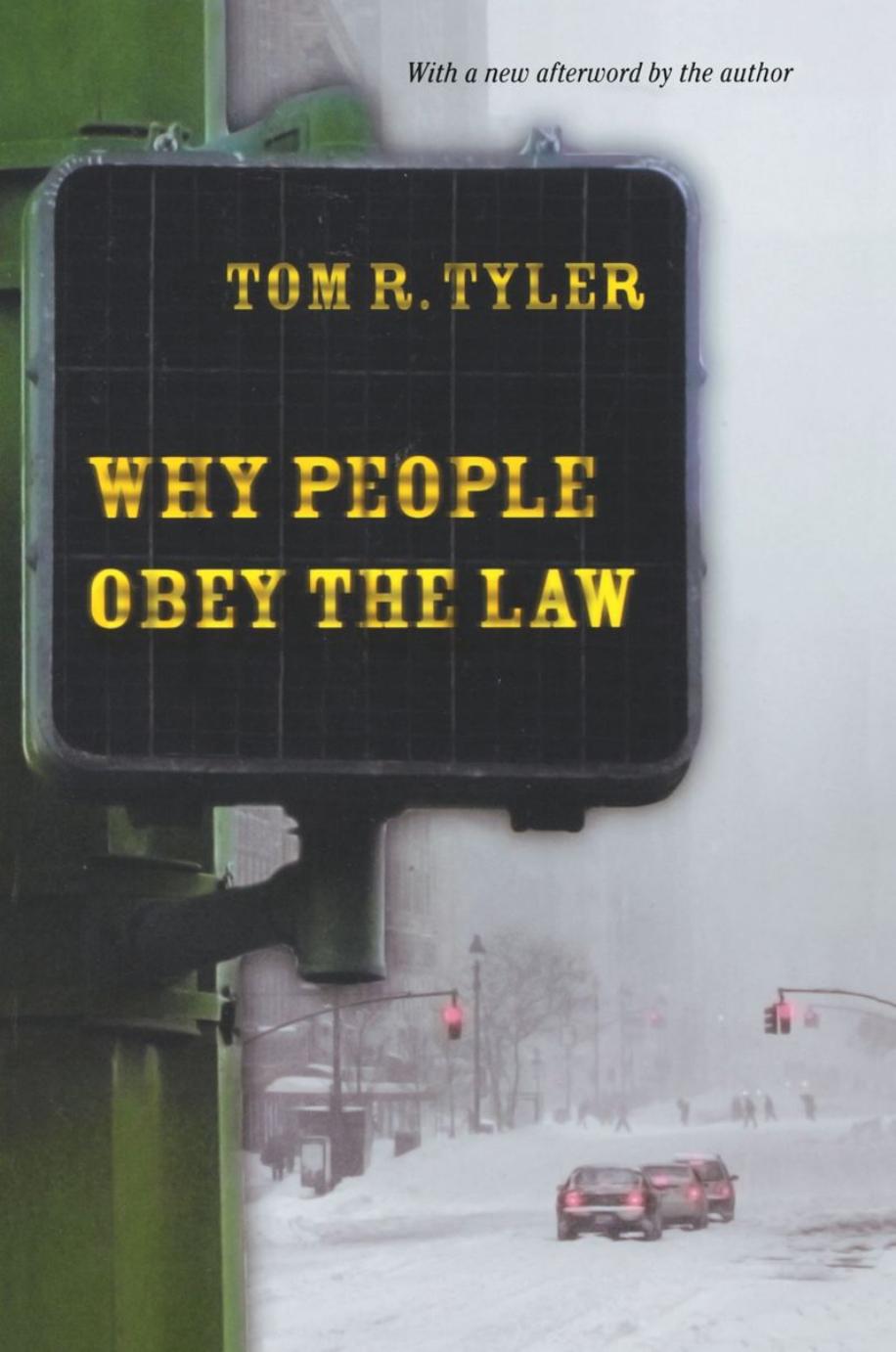Why People Obey the Law by Tom R. Tyler

Author:Tom R. Tyler
Language: eng
Format: epub, pdf
Publisher: Princeton University Press
Published: 2021-06-15T00:00:00+00:00
The Psychology of Value-Expression
The Chicago study also provides insight into the psychological mechanisms underlying value-expressive process control effects. The most important factor shaping peopleâs reactions to having process control is their assessment of the degree to which their views are considered by the decision maker (see also Tyler 1987a). Simply providing structural opportunities to speak is not enough to produce value-expressive effects: citizens must also infer that what they say is being considered by the decision maker. Because of this requirement, the prior views that citizens use as a basis for interpreting the actions of the authorities they deal with are an important determinant of whether process control without decision control enhances feelings of fair treatment. If citizens believe that the authorities are fair, they are more likely to interpret favorably a situation of high process control and low decision control. In such a situation those with positive prior views about the authorities are more likely to infer that their views were considered by the decision maker.
Authorities can enhance the acceptance of their decisions by the way they present them to affected parties. The justifications that leaders offer for their actions seem to affect the responses of subordinates to the actions (see Tyler and Bies, in press). According to the Chicago study, one type of justification is likely to be effective in explaining a lack of decision control: the argument that the citizenâs views were considered but (unfortunately) could not influence the decision made. Of course, prior views about the authorities involved will influence the extent to which citizens accept such explanations.
The noninstrumental component of process control effects is of key importance. Citizens do not evaluate their experiences with the police and courts by examining their short-term control over outcomes (Tyler, Rasinski, and Spodick 1985). If they believe that their views are being considered by the authorities, citizens accept a lack of decision control if they have been given the opportunity to state their case.
Although process control effects clearly do not advance self-interest in the short term, it is not clear whether the value-expressive effects of process control found in the Chicago study are noninstrumental in character, or whether they are linked to assessments of long-term self-interest. According to a perspective grounded in long-term self-interest, citizens recognize that they cannot always influence the actions of the authorities. Their allegiance to the group is based on their belief that over time their membership in the group will give them a reasonable level of positive outcomes. This belief can be maintained only if citizens believe that their concerns are being considered by decision-making authorities (Easton 1965; Tyler 1986a). If their views are not considered, citizens will not believe that the authorities are attempting to deal with them in a reasonable way, and long-term allegiance will be called into question.
An alternative perspective on process control focuses on the noninstrumental character of value-expressive effects. According to a noninstrumental perspective, people value the opportunity to address authority figures, irrespective of the effect on decisions of what they say.
Download
This site does not store any files on its server. We only index and link to content provided by other sites. Please contact the content providers to delete copyright contents if any and email us, we'll remove relevant links or contents immediately.
| Comparative | Conflict of Laws |
| Customary | Gender & the Law |
| Judicial System | Jurisprudence |
| Natural Law | Non-US Legal Systems |
| Science & Technology |
American Kingpin by Nick Bilton(3886)
Future Crimes by Marc Goodman(3600)
The Meaning of the Library by unknow(2571)
Inside the Middle East by Avi Melamed(2356)
Why Nations Fail: The Origins of Power, Prosperity, and Poverty by Daron Acemoglu & James Robinson(2297)
On Tyranny by Timothy Snyder(2232)
Living Silence in Burma by Christina Fink(2071)
Putin's Labyrinth(2022)
The Mastermind by Evan Ratliff(1937)
The Smartest Kids in the World by Amanda Ripley(1856)
Think Like a Rocket Scientist by Ozan Varol(1820)
Law: A Very Short Introduction by Raymond Wacks(1748)
It's Our Turn to Eat by Michela Wrong(1731)
The Rule of Law by Bingham Tom(1698)
Philosophy of law a very short introduction by Raymond Wacks(1670)
Leadership by Doris Kearns Goodwin(1638)
A Dirty War by Anna Politkovskaya(1630)
Information and Communications Security by Jianying Zhou & Xiapu Luo & Qingni Shen & Zhen Xu(1621)
Civil Procedure (Aspen Casebooks) by Stephen C. Yeazell(1556)
